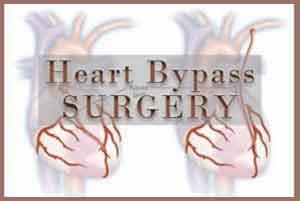- Home
- Editorial
- News
- Practice Guidelines
- Anesthesiology Guidelines
- Cancer Guidelines
- Cardiac Sciences Guidelines
- Critical Care Guidelines
- Dentistry Guidelines
- Dermatology Guidelines
- Diabetes and Endo Guidelines
- Diagnostics Guidelines
- ENT Guidelines
- Featured Practice Guidelines
- Gastroenterology Guidelines
- Geriatrics Guidelines
- Medicine Guidelines
- Nephrology Guidelines
- Neurosciences Guidelines
- Obs and Gynae Guidelines
- Ophthalmology Guidelines
- Orthopaedics Guidelines
- Paediatrics Guidelines
- Psychiatry Guidelines
- Pulmonology Guidelines
- Radiology Guidelines
- Surgery Guidelines
- Urology Guidelines
Transfuse Blood only if Haemoglobin < 7.5 gm% in Cardiac Surgery : ESC Update

A restrictive strategy for red-cell transfusion was noninferior to a liberal strategy with respect to the composite outcome of death from any cause, myocardial infarction, stroke, or new-onset renal failure with dialysis at 6 months after surgery in patients undergoing cardiac surgery who were at moderate-to-high risk for death, finds the results of TRICS II clinical trial reported at the European Society of Cardiology annual meeting and simultaneously published in the New England Journal of Medicine.
Transfusing for hemoglobin concentrations <7.5 g/dL, rather than liberally when levels dropped <9.5 g/dL in the ICU or <8.5 g/dL outside the ICU, was noninferior for the composite of death from any cause, MI, stroke, or new-onset renal failure with dialysis within 6 months of surgery (17.4% vs 17.1%,)
In restrictive strategies for red-cell transfusion, lower hemoglobin concentrations are used for transfusion in patients undergoing cardiac surgery whereas in liberal strategies higher hemoglobin concentrations are used for transfusion.
David Mazer and his associates conducted a Transfusion Requirements in Cardiac Surgery (TRICS) III trial to compare a restrictive transfusion strategy with a liberal strategy in patients undergoing cardiac surgery with cardiopulmonary bypass who had at least a moderate risk of death.
Read Also:Rate versus rhythm control for AF after cardiac surgery : which is better
The investigators randomly assigned 5243 adults undergoing cardiac surgery to a restrictive red-cell transfusion strategy (transfusion if the hemoglobin concentration was <7.5 g per deciliter intraoperatively or postoperatively) or a liberal red-cell transfusion strategy (transfusion if the hemoglobin concentration was <9.5 g per deciliter intraoperatively or postoperatively when the patient was in the intensive care unit [ICU] or was <8.5 g per deciliter when the patient was in the non-ICU ward).
The primary composite outcome was death from any cause, myocardial infarction, stroke, or new-onset renal failure with dialysis occurring within 6 months after the initial surgery.
Key study findings:
- At 6 months after surgery, the primary composite outcome had occurred in 402 of 2317 patients (17.4%) in the restrictive-threshold group and in 402 of 2347 patients (17.1%) in the liberal-threshold group.
- Mortality was 6.2% in the restrictive-threshold group and 6.4% in the liberal-threshold group.
The study concluded that the 6-month follow-up of the TRICS III trial showed that, in patients who had a moderate-to-high risk of death after cardiac surgery, a restrictive strategy of red-cell transfusion was noninferior to a liberal strategy in terms of the prespecified primary composite outcome of death from any cause, myocardial infarction, stroke, or renal failure with dialysis. At 6 months, there were no significant differences between the restrictive strategy and the liberal strategy in the individual components of the primary composite outcome and of the expanded composite outcome that included hospital readmission, emergency department visit, or coronary revascularization.

Disclaimer: This site is primarily intended for healthcare professionals. Any content/information on this website does not replace the advice of medical and/or health professionals and should not be construed as medical/diagnostic advice/endorsement or prescription. Use of this site is subject to our terms of use, privacy policy, advertisement policy. © 2020 Minerva Medical Treatment Pvt Ltd